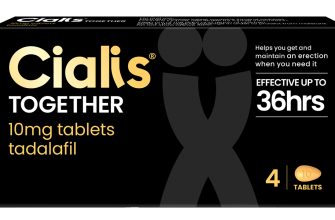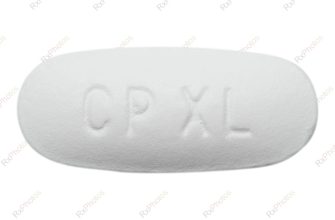If you’re seeking fast and reliable pain relief, extra strength aspirin is an excellent choice. Known for its powerful ability to alleviate headaches, muscle aches, and other discomforts, this medication can quickly help you regain your day. It’s specifically formulated to deliver a higher dose of salicylate than regular aspirin, making it more potent for tackling those stubborn pains.
Dosage matters. For adults, taking 500 to 1000 mg every four to six hours is typically recommended, but always consult with your healthcare provider to determine what suits your needs best. Keep in mind, staying within the maximum daily limit is crucial to avoid undesirable side effects. Be aware of your health conditions, as factors like ulcers, liver disease, or aspirin allergies can affect your suitability for this medication.
Extra strength aspirin is not just a painkiller; it also serves as an anti-inflammatory agent. This dual function makes it effective for conditions such as arthritis. Regular users often note a significant improvement in mobility and pain levels, enhancing overall quality of life. Always take it with food or a full glass of water to protect your stomach and optimize absorption.
Stay informed about interactions with other medications, particularly blood thinners or certain antidepressants. Understanding how these compounds work together can help you manage your health more effectively. Keep aspirin in your medicine cabinet, but be sure to read the labels and follow the recommendations carefully for a safe and productive experience.
- Extra Strength Aspirin: A Comprehensive Overview
- What is Extra Strength Aspirin?
- Uses of Extra Strength Aspirin
- Dosage and Administration
- Uses and Indications for Extra Strength Aspirin
- Cardiovascular Benefits
- Dosing and Considerations
- Dosage Guidelines for Extra Strength Aspirin
- Potential Side Effects of Extra Strength Aspirin
- Interactions with Other Medications
- Who Should Avoid Extra Strength Aspirin?
- Additional Health Factors
- Consult Your Healthcare Provider
- Alternatives to Extra Strength Aspirin for Pain Relief
Extra Strength Aspirin: A Comprehensive Overview
Extra Strength Aspirin provides targeted relief for various types of pain, including headaches, muscle aches, and arthritis discomfort. This formulation typically contains 500 mg of acetylsalicylic acid per tablet, making it suitable for those who need stronger pain management. Always follow dosage recommendations, which usually suggest one or two tablets every four to six hours, not exceeding a total of eight tablets in 24 hours.
This medication works by inhibiting certain enzymes in the body, effectively reducing inflammation and blocking pain signals. Users can benefit from its anti-inflammatory properties, which assist in managing conditions like osteoarthritis and rheumatic fever.
Consider potential side effects such as gastrointestinal irritation, which may occur if aspirin is taken on an empty stomach. Taking it with food can help minimize discomfort. Those with a history of stomach ulcers, bleeding disorders, or allergies to NSAIDs should consult a healthcare professional before use.
Extra Strength Aspirin is also known for its role in heart health, as low-dose aspirin therapy can reduce the risk of heart attack and stroke. However, routine use for this purpose should only occur under medical advice.
Interactions with other medications, such as blood thinners or certain antidepressants, can increase the risk of bleeding. Always disclose current medications to your healthcare provider before starting Extra Strength Aspirin to avoid complications.
Store this product at room temperature away from moisture and heat. Checking expiration dates is essential, as expired medications may lose potency.
In summary, Extra Strength Aspirin serves as a powerful option for pain and inflammation relief, provided users adhere to recommended guidelines and consult with healthcare professionals when necessary.
What is Extra Strength Aspirin?
Extra Strength Aspirin contains a higher dosage of acetylsalicylic acid, typically 500 mg per tablet, compared to regular aspirin formulations. This increased dosage helps provide more potent relief from pain and inflammation, making it suitable for managing moderate to severe discomfort.
Uses of Extra Strength Aspirin
- Relief from headaches, including migraines
- Alleviation of muscle aches and joint pain
- Reduction of fever
- Management of menstrual cramps
- Relief from arthritis symptoms
Dosage and Administration
The recommended dose varies based on the condition being treated. Generally, adults can take 1 to 2 tablets every four to six hours as needed, without exceeding 8 tablets in 24 hours. It’s crucial to follow the instructions on the packaging or consult a healthcare provider for guidance tailored to individual health needs.
Always take with food or a full glass of water to minimize stomach upset. Individuals with certain medical conditions or those taking other medications should seek advice before use.
Extra Strength Aspirin is an effective choice for those needing enhanced pain relief, but responsible use is essential to avoid potential side effects such as gastrointestinal discomfort or bleeding. Keep it out of reach of children, and store at room temperature.
Uses and Indications for Extra Strength Aspirin
Extra strength aspirin is primarily utilized for relieving moderate pain, such as headaches, muscle aches, and toothaches. It effectively reduces inflammation and provides relief from symptoms associated with arthritis and other inflammatory conditions. When experiencing menstrual cramps, this medication can also alleviate discomfort.
Cardiovascular Benefits
Beyond pain relief, extra strength aspirin plays a critical role in cardiovascular health. It lowers the risk of heart attacks and strokes by inhibiting platelet aggregation. Many healthcare professionals recommend it for individuals with a history of cardiovascular events or those at high risk, emphasizing adherence to prescribed dosages.
Dosing and Considerations
For adults, the standard dose is typically 500-1000 mg every 4 to 6 hours, not exceeding 4,000 mg in a 24-hour period. Monitoring for potential side effects, such as gastrointestinal bleeding, is essential, especially in long-term users or those with existing disorders. Always consult a healthcare provider for personalized advice and to assess compatibility with other medications.
Dosage Guidelines for Extra Strength Aspirin
For adults, the typical dosage of extra strength aspirin (usually 500 mg) for pain relief is 1-2 tablets every 4 to 6 hours as needed. Do not exceed 8 tablets in a 24-hour period unless directed by a healthcare professional.
- Adults: 1-2 tablets (500 mg each) every 4-6 hours.
- Maximum dosage: Do not exceed 8 tablets in 24 hours.
For specific conditions such as inflammatory disorders, a doctor may recommend a different dosage. Always follow the healthcare provider’s instructions regarding your specific needs.
Children and teenagers under 18 should avoid extra strength aspirin due to the risk of Reye’s syndrome, a rare but serious illness.
Always take aspirin with food or a full glass of water to minimize potential gastrointestinal discomfort. If you have conditions such as peptic ulcers, kidney problems, or are on blood thinners, consult a healthcare provider before using aspirin.
If symptoms persist after 3 days of treatment, seek medical advice. Do not use aspirin if you experience any signs of an allergic reaction, such as rash, itching, or difficulty breathing.
Potential Side Effects of Extra Strength Aspirin
Extra strength aspirin can cause gastrointestinal issues such as stomach pain, heartburn, or nausea. Taking the medication with food can help mitigate these effects.
Bleeding risks increase with higher doses. Aspirin can lead to ulcers and gastrointestinal bleeding, especially in those with a history of such conditions. Monitoring any unusual bleeding or bruising is important.
Allergic reactions may occur, presenting as hives, difficulty breathing, or swelling of the face and throat. If any of these symptoms appear, seek medical assistance immediately.
Tinnitus or ringing in the ears can result from high doses. Reducing intake typically alleviates this side effect.
Overdosing on aspirin can lead to severe symptoms such as confusion, dizziness, or rapid breathing. If an overdose is suspected, contact medical services without delay.
Consult a healthcare professional before starting extra strength aspirin, particularly for individuals with existing health issues or those taking other medications, as interactions can enhance side effects.
Regularly evaluating your response to the medication aids in identifying any side effects early. Always prioritize safety and health when considering aspirin for pain relief.
Interactions with Other Medications
Always consult your healthcare provider before taking extra strength aspirin with other medications. Aspirin can interact with a variety of drugs, impacting their effectiveness and increasing the risk of side effects.
Nonsteroidal anti-inflammatory drugs (NSAIDs) should not be combined with extra strength aspirin due to heightened risks of gastrointestinal bleeding and ulcers. If you are using ibuprofen or naproxen, spacing your doses is critical.
The combination of aspirin and anticoagulants, like warfarin, demands careful monitoring. Increased bleeding risk may occur, so your doctor may adjust dosages accordingly.
Some anti-diabetic medications may also interact with aspirin. For instance, oral hypoglycemics when taken together can affect blood sugar levels. Always monitor your glucose levels if you are using both treatments.
Selective serotonin reuptake inhibitors (SSRIs) can heighten bleeding risks when taken with aspirin. This combination requires caution and should be done under close medical supervision.
Be wary of herbal supplements as well, particularly Ginkgo biloba, which may exacerbate bleeding risks. Discuss any supplements you’re taking with your healthcare provider before using extra strength aspirin.
In case of any unusual symptoms, such as prolonged bleeding, dizziness, or unusual bruising after beginning extra strength aspirin, seek medical advice promptly. Your safety and health should always be the priority.
Who Should Avoid Extra Strength Aspirin?
Individuals with certain health conditions should avoid Extra Strength Aspirin. Pregnant women, particularly in the third trimester, should steer clear due to potential risks to the fetus. Those with a history of gastrointestinal bleeding or ulcers also need to refrain from its use, as aspirin can exacerbate these issues.
Additional Health Factors
People with asthma may experience increased sensitivity to aspirin, leading to severe respiratory reactions. Those on anticoagulant medications must consult their healthcare provider, as combining these can heighten bleeding risks.
| Condition | Recommendation |
|---|---|
| Pregnancy | Avoid during third trimester |
| Gastrointestinal Bleeding | Do not use |
| Unevaluated Asthma | Consult a doctor before use |
| Anticoagulant Therapy | Consult doctor for guidance |
Consult Your Healthcare Provider
Before starting Extra Strength Aspirin, review your medications and health status with your healthcare provider, especially if you have any chronic illnesses or conditions affecting liver or kidney function. Prioritizing safety ensures informed decisions about your health choices.
Alternatives to Extra Strength Aspirin for Pain Relief
Consider nonsteroidal anti-inflammatory drugs (NSAIDs) like ibuprofen or naproxen for reliable pain relief. These medications effectively reduce inflammation and alleviate discomfort without the gastrointestinal side effects associated with high doses of aspirin.
Acetaminophen is another option for relieving mild to moderate pain. This analgesic does not possess anti-inflammatory properties but can be gentler on the stomach, making it suitable for those sensitive to NSAIDs.
For those seeking natural alternatives, turmeric and ginger have anti-inflammatory properties. Consuming them in supplement form or as part of your diet can help manage pain and reduce inflammation.
Topical analgesics, such as creams containing menthol or capsaicin, can provide targeted relief for localized pain. Applying these directly to the sore area can help reduce discomfort without systemic side effects.
Physical therapies, including stretching, massage, or acupuncture, also offer effective ways to relieve pain. Regular sessions can improve mobility and reduce tension, making them excellent adjuncts to medication.
Whenever considering alternative pain relief options, consult a healthcare professional to ensure they align with your specific health needs and conditions.










